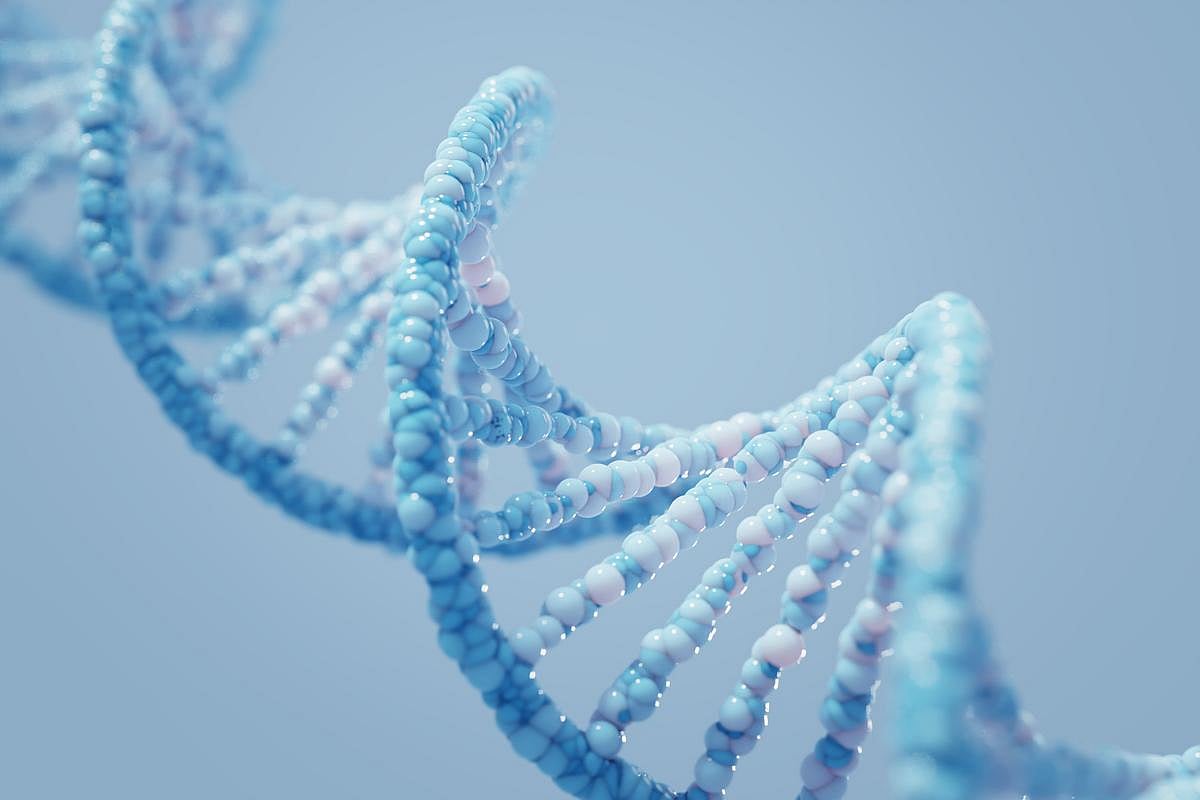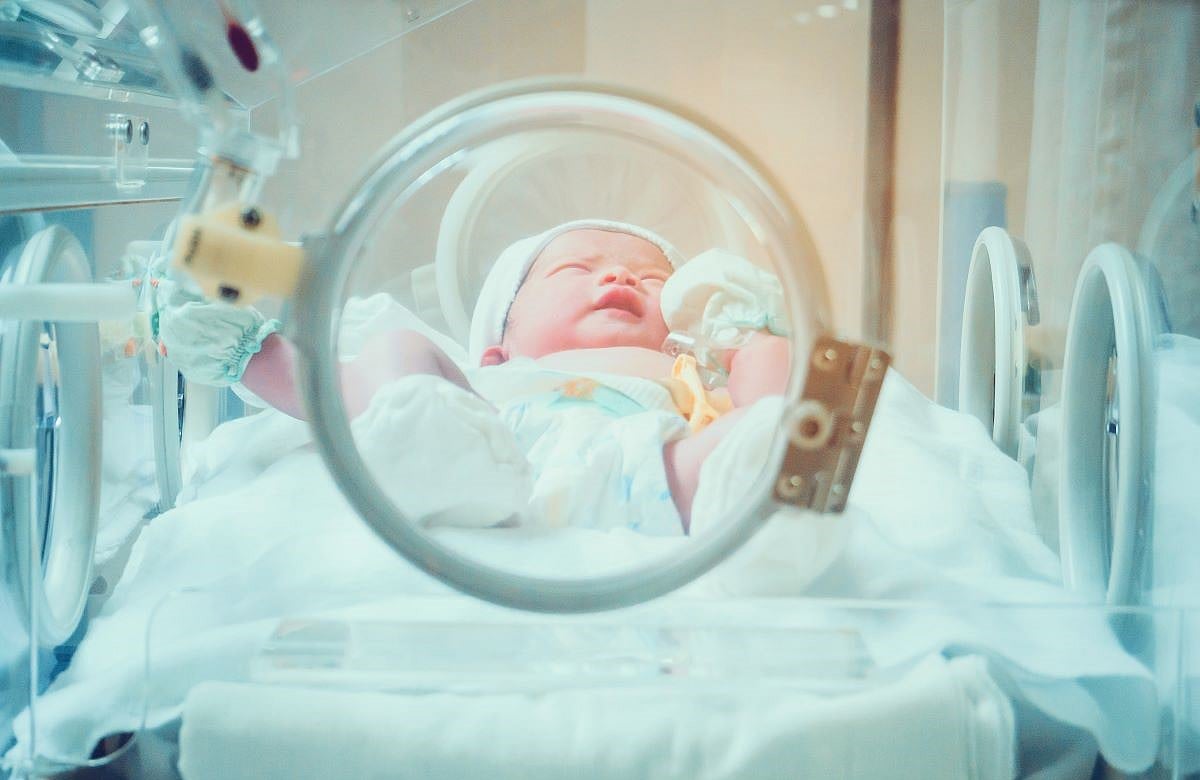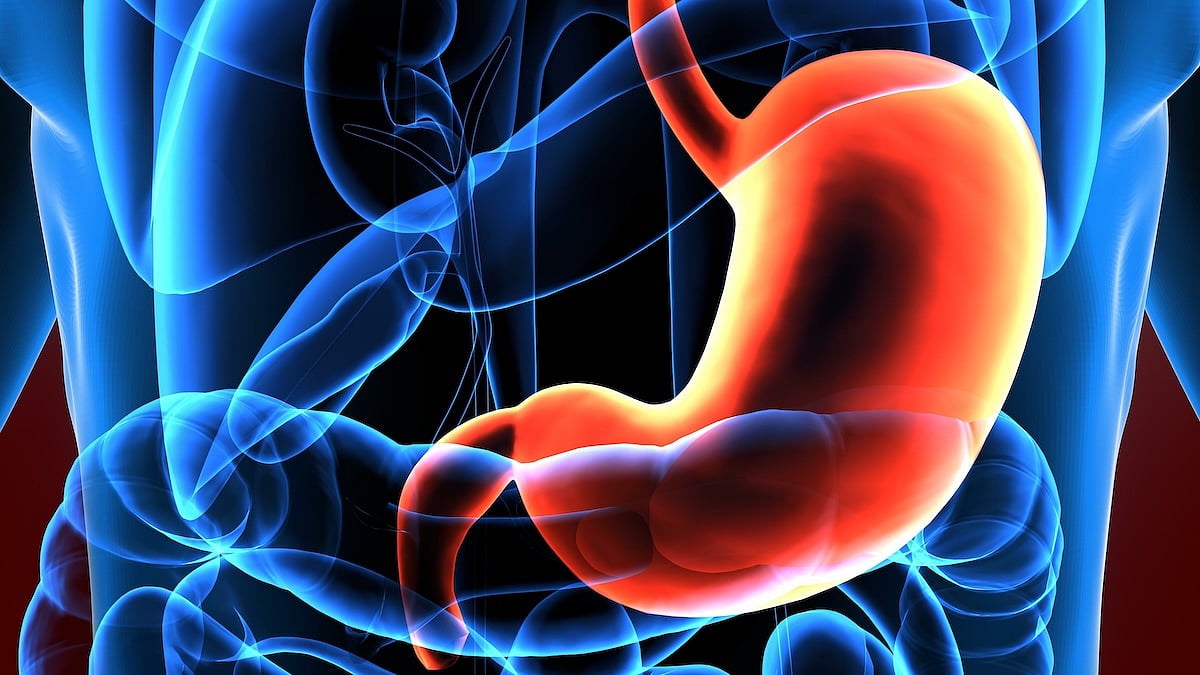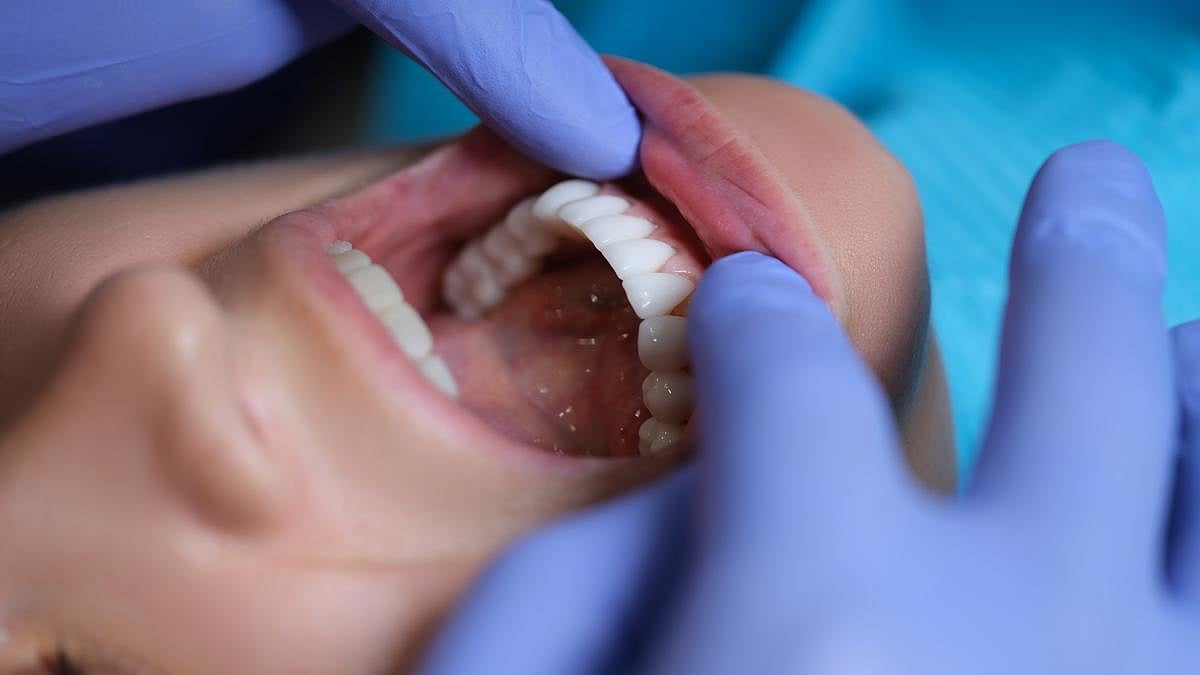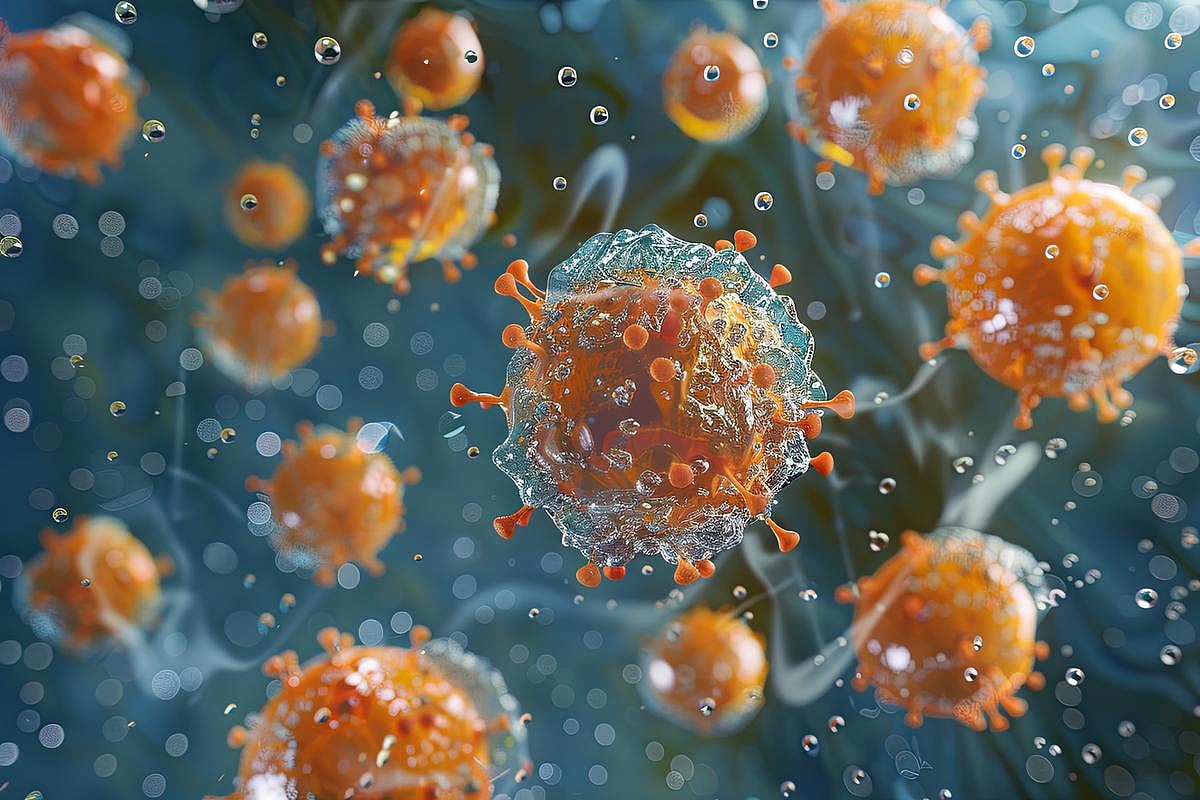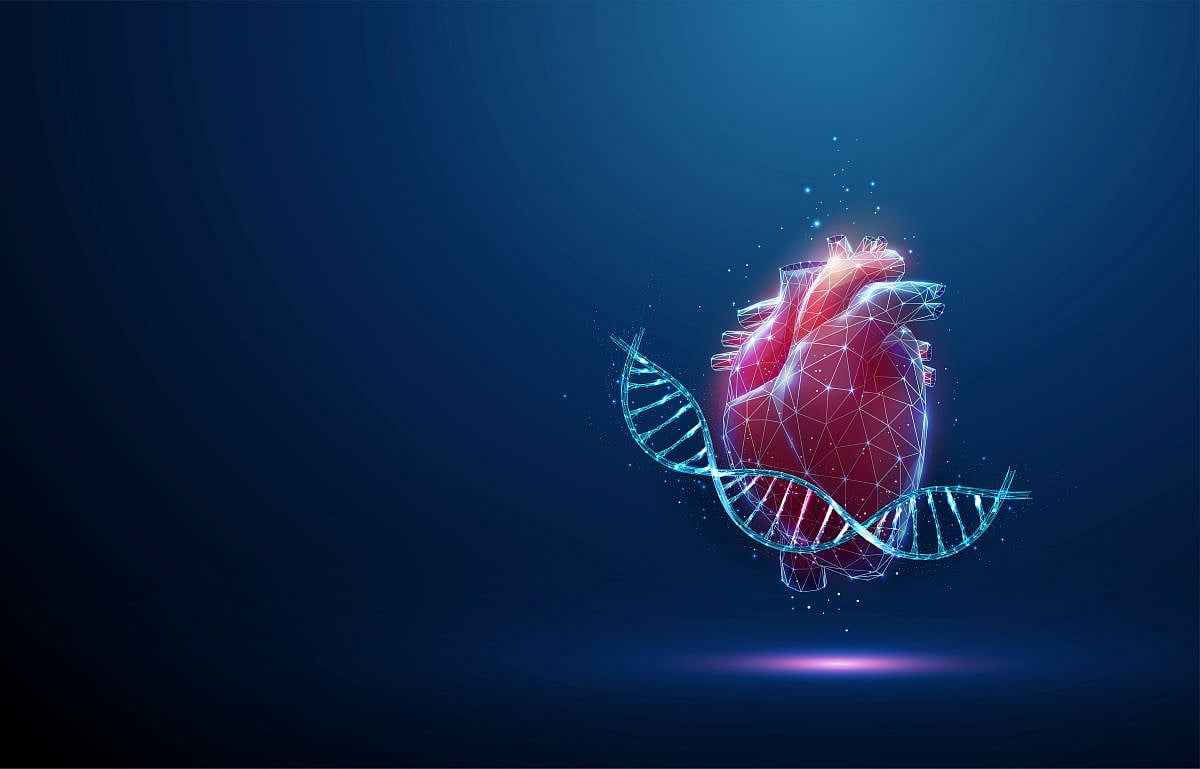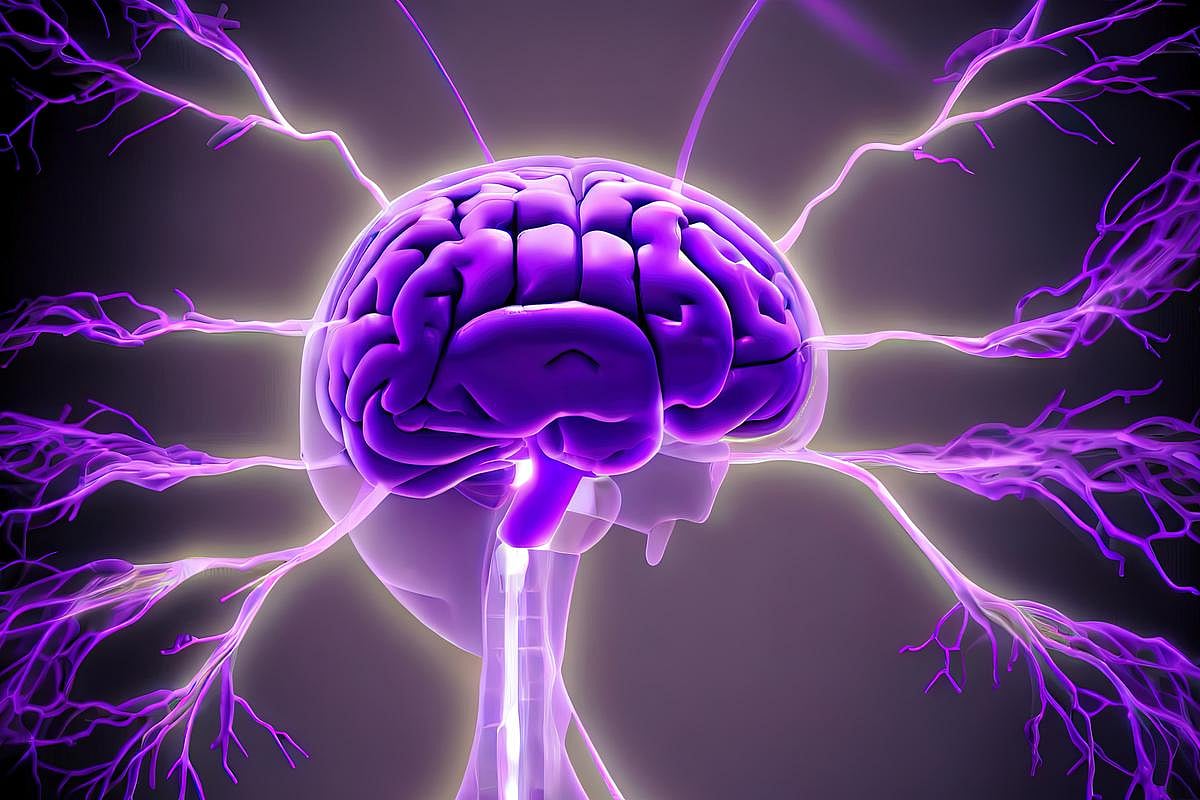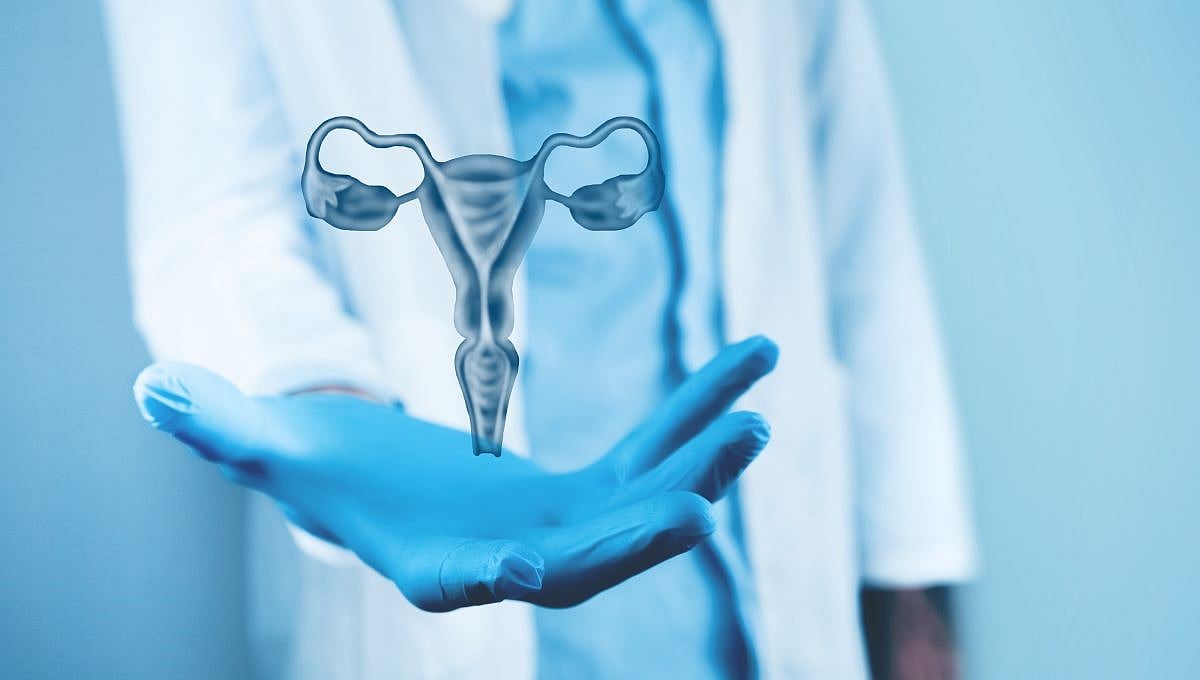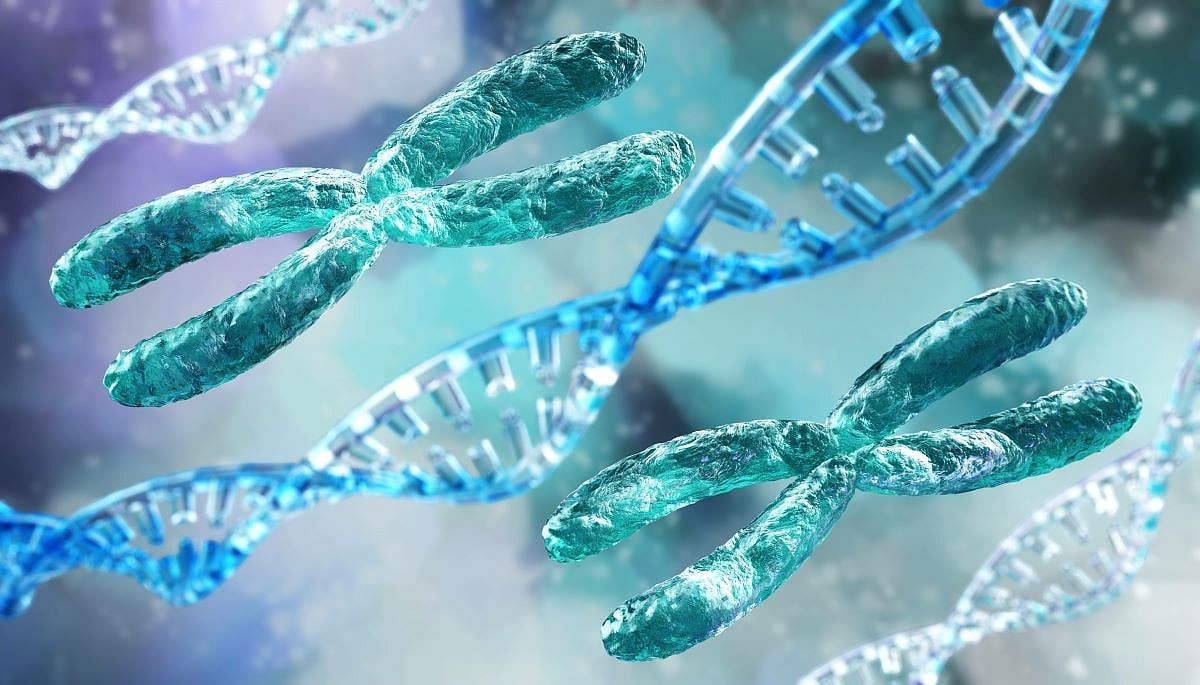Get Healthy!
Results for search "Genetics".
26 Sep
Study of the World’s Oldest Person Reveals Secrets to Longevity
Researchers unlock the molecular secrets behind Spanish supercentenarian who lived 117 years free of cancer, heart disease, and dementia.
Health News Results - 202
People are often told that eating well, exercising and avoiding bad habits are the fundamentals to a long life.
But new research suggests something else may matter even more: genetics.
A large study published Jan. 29 in the journal Science suggests genetics could account for as much as 55% of a person&r...
- I. Edwards HealthDay Reporter
- |
- February 2, 2026
- |
- Full Page
So-called “super agers” have a couple of genetic advantages that help them maintain their brain health into late old age, a new study says.
These folks are less likely to harbor the gene variant most associated with late-onset Alzheimer’s...
- Dennis Thompson HealthDay Reporter
- |
- January 21, 2026
- |
- Full Page
Psychiatric conditions as varied as schizophrenia and bipolar disorder might be driven by very similar genetic underpinnings, a new study says.
Mental health problems can be sorted into five general genetic categories, each with a shared “genetic architecture” driving people’s illness, according to results published in the journal
Most folks with genetics that put them at risk for high cholesterol and early heart disease aren’t aware of their danger, a new study says.
Nearly 90% of people carrying genetics that cause dangerously high cholesterol — an inherited condition called familial hypercholesterolemia — were not aware of their risk, researchers recently reported in journal
Millions of Americans carry hidden genetic mutations that increase their risk of cancer, regardless of their family’s cancer history, according to a new study.
As many as 5% of Americans, or about 17 million, have genetic variants linked to cancer, researchers recently reported in the Journal of the American Med...
- Dennis Thompson HealthDay Reporter
- |
- October 31, 2025
- |
- Full Page
A new Guinness World Record for fastest whole human genome sequencing has been achieved, with researchers breaking down a patient’s genetic profile in less than four hours.
The 3-hour 57-minute analysis surpassed the previous record of 5 hours and 2 minutes, researchers reported Oct. 15 in The
A genetic risk score can help predict which women will develop invasive breast cancer after abnormal cells have been found in their breast tissue, researchers said.
Women who scored high on the genetic blood test were twice as likely to develop breast cancer after doctors found abnorm...
- Dennis Thompson HealthDay Reporter
- |
- October 2, 2025
- |
- Full Page
A new blood test can potentially detect head and neck cancers caused by human papilloma virus (HPV) up to 10 years before symptoms appear, a new study says.
The test, called HPV-DeepSeek, detects microscopic fragments of HPV DNA that have broken off from a tumor and entered the bloodstrea...
- Dennis Thompson HealthDay Reporter
- |
- September 12, 2025
- |
- Full Page
Cystic fibrosis (CF) is a rare autosomal recessive disorder that affects numerous systems of the body. It is a complicated disease that differs from person to person.
An autosomal recessive disorder is a genetic condition in which an affected person has inherited a mutated gene from each parent.
In CF, mutations in the CF transmembrane conductance regulator (CFTR) gene can cau...
- HealthDay Reporter
- Dr. Sandy Sufian, historian of medicine and disability at University of Illinois at Chicago
- |
- June 24, 2025
- |
- Full Page
Vitamin D supplements might be a veritable Fountain of Youth, capable of slowing down a person’s biological aging, a new study says.
People taking daily vitamin D3 experienced less wear-and-tear on their telomeres, the protective caps of DNA code at the ends of chromosomes, researchers reported in the Am...
- HealthDay Reporter
- Dennis Thompson
- |
- May 27, 2025
- |
- Full Page
Men are usually about five inches taller than women, but scientists have long wondered why. Now, a new study points to a possible reason: A gene called SHOX.
The study -- published May 19 in the Proceedings of the National Academy of Sciences -- was drawn from genetic data from roughly 1 million people, The New York Times reported. Researchers looked at information from three lar...
- HealthDay Reporter
- I. Edwards
- |
- May 20, 2025
- |
- Full Page
Removal of the ovaries and fallopian tubes appears to dramatically reduce the risk of death among breast cancer survivors who are genetically prone to cancer, a new study says.
Breast cancer survivors carrying BRCA1 and BRCA2 gene variants had a 48% overall lower risk of death after u...
- HealthDay Reporter
- Dennis Thompson
- |
- May 9, 2025
- |
- Full Page
Four specific genes serve as a telltale clue to how potentially deadly stomach cancers will develop and progress, a new study says.
Testing for these genetic mutations could enable doctors to offer targeted treatments and spare some patients from going through aggressive measures like surg...
- HealthDay Reporter
- Dennis Thompson
- |
- April 25, 2025
- |
- Full Page
Radiation therapy is commonly used to treat prostate cancer, but it can cause embarrassing urinary problems in some men.
But a new genetic test appears capable of sussing out which men are at greater risk of urinary side effects from radiation treatment, a new study says.
Th...
- HealthDay Reporter
- Dennis Thompson
- |
- April 16, 2025
- |
- Full Page
THURSDAY, April 10, 2025 (HealthDay News) -- Having a father with Alzheimer’s disease could put you at risk for brain changes linked to the degenerative disorder, a new study says.
People whose fathers fell prey to Alzheimer’s had a greater spread of tau proteins in their brain, according to findings published in the journal
A rapid experimental genetic test can help guide the hands of surgeons as they delicately remove tumors from patients with brain cancer, new research suggests.
The test can measure the level of cancer cells in a tissue sample within 15 minutes, quick enough to give surgeons feedback while the patient’s still in the operating room.
The gene test can detect as few as five cancer...
- HealthDay Reporter
- Dennis Thompson
- |
- February 26, 2025
- |
- Full Page
TUESDAY, Feb. 18, 2025 (HealthDay News) --Extensive genetic testing is recommended for all children with epilepsy, unexplained developmental delays, autism and other neurological conditions.
New research, however,...
- HealthDay Reporter
- Denise Mann
- |
- February 18, 2025
- |
- Full Page
It's long been known that certain complications of pregnancy can raise a woman's risk for heart trouble years later.
But new research shows that even the sisters of these women can be at higher heart risk -- suggesting risks may be genetically shared within families.
“It may be important to identify [all of] these women early to offer preventive treatment for pregnancy complic...
- HealthDay Reporter
- Ernie Mundell
- |
- February 10, 2025
- |
- Full Page
A person’s lifetime risk of cancer might be partly established before they are even born, a new mouse study says.
Researchers identified two distinct genetic states that arise during fetal development and are linked to cancer risk, according to a report published recently in
- HealthDay Reporter
- Dennis Thompson
- |
- February 3, 2025
- |
- Full Page
Cutting-edge targeted therapies are pushing back the line between life and death for cancer patients.
However, these targeted cancer drugs frequently aren’t benefitting members of ethnic and racial minorities in the U.S., a new published in the journal
Genetic tests can show which patients with the blood cancer multiple myeloma should respond to targeted therapy, a new study finds.
A special six-gene pattern can help predict who are more likely to respond well to Venclexta (venetoclax), a pill that promotes natural cell death among cancer cells, researchers said.
“By knowing...
- HealthDay Reporter
- Dennis Thompson
- |
- December 4, 2024
- |
- Full Page
A gene that causes accelerated reproductive aging is directly tied to the risk of miscarriage in younger women, a new study says.
A mutation of the gene KIF18A speeds up the aging process of eggs in younger women, diminishing their fertility, researchers report.
“Knowledge of the precise genetic landscape that ...
- HealthDay Reporter
- Dennis Thompson
- |
- November 26, 2024
- |
- Full Page
Scientists from around the world are making headway in compiling a Human Cell Atlas -- a deep dive into the myriad types of cells in the body and their disparate roles in health and disease.
The atlas is not yet complete, but 40 different scientific papers on cell research, published Nov. 20 in the journal Nature...
- HealthDay Reporter
- Ernie Mundell
- |
- November 20, 2024
- |
- Full Page
It's long been known that certain structural qualities of the human heart -- its size, chamber volume -- can influence cardiovascular health.
British scientists say they're now discovering that the gene-directed shape of a person's heart might matter, too.
“This study provides new information on how we think about heart disease risk,” said study senior author
People who regularly use marijuana experience changes in their brain structure and function, but it’s not clear that cannabis is the cause, a new study finds.
Researchers found specific differences in the brains of people who’d ever used weed, particularly in areas densely packed with cannabinoid receptors. However, genetic analysis couldn’t pin down any specific associa...
- HealthDay Reporter
- Dennis Thompson
- |
- October 30, 2024
- |
- Full Page
Most kids with attention issues won't go on to develop serious psychiatric conditions like psychosis or schizophrenia.
However, a new study finds poor attention spans in childhood, plus certain genes, could play a role in raising the risk for these conditions.
Of course, much more research is needed to pinpoint precursors to psychotic symptoms in a person's teens or 20s, said a t...
- HealthDay Reporter
- Ernie Mundell
- |
- October 29, 2024
- |
- Full Page
DNA analysis of newborns can detect many more preventable or treatable health problems than standard newborn screening does, a new study shows.
Genome sequencing identified 120 babies with serious and treatable health conditions out of 4,000 newborns, researchers reported Oct. 24 in the Journal of the American Medical Association
- HealthDay Reporter
- Dennis Thompson
- |
- October 24, 2024
- |
- Full Page
Folks who struggle to reduce their carb intake might be able to blame ancient DNA still lurking in humans, a new study suggests.
Humans carry multiple copies of the salivary amylase gene (AMY1), which helps begin breaking down starch in the mouth -- the first step in digesting carb-laden foods like bread and pasta, researchers said.
The duplication of this gene might have occurred a...
- HealthDay Reporter
- Dennis Thompson
- |
- October 18, 2024
- |
- Full Page
The key to weight loss could come down to a combination of 14 “skinny genes,” a recent study says.
People with these genes dropped twice as much weight through regular exercise compared to those without the genes, researchers found.
Those with the most of these genetic markers lost up to 11 pounds following eight weeks of
A pair of American scientists have won the 2024 Nobel Prize in medicine for their discovery of microRNA, tiny genetic molecules that play a crucial role in how genes shape the body.
The research of Victor Ambros and Gary Ruvkun “revealed a new dimension to gene regulation, essential f...
- HealthDay Reporter
- Dennis Thompson
- |
- October 7, 2024
- |
- Full Page
A new test called CheekAge, based on a quick swab of cells in the mouth, might someday be used to predict how long a person has to live, developers report.
The test tracks what are known as epigenetics: The way in which a person's environment or lifestyle affects how their genes function throughout the life span.
A key marker of epigenetics is DNA methylation, molecular changes in ...
- HealthDay Reporter
- Ernie Mundell
- |
- October 1, 2024
- |
- Full Page
Pulling your hair out in frustration with your finicky youngster?
Don’t blame your parenting style -- genetics likely played a huge role in their eating habits, a new twins study FINDs.
Fussy eating is mainly influenced by genes, according to findings published Sept. 19 in the Journal of Child Psychology & Psychiatry<...
- HealthDay Reporter
- Dennis Thompson
- |
- September 20, 2024
- |
- Full Page
People with rare genetic variants linked to degenerative brain disorders like Parkinson’s disease are at increased risk of developing ALS, a new study finds.
Further, having these genetic variants increases the risk of a person having faster-progressing ALS (amyotrophic lateral sclerosis) and dying ...
- HealthDay Reporter
- Dennis Thompson
- |
- September 16, 2024
- |
- Full Page
Nearly a quarter of all ovarian cancers are fueled by family genetics, so what should you do if your mom or sister are diagnosed?
According to one expert, knowing whether you are at high risk is the first step toward taking measures that can mitigate that increased danger. Getting a genetic test for yourself is how you find that out.
What do you do if that test comes back positive?<...
- HealthDay Reporter
- Robin Foster
- |
- September 15, 2024
- |
- Full Page
New research suggests that switching from smoking to vaping won't prevent some dangerous changes to a person's genome.
A new study conducted in young adults shows similar cancer-linked gene changes in both vapers and smokers.
“These findings have significant...
- HealthDay Reporter
- Ernie Mundell
- |
- August 13, 2024
- |
- Full Page
Folks can overcome their genetic risk for type 2 diabetes through healthy diet and regular exercise, a new study says.
A healthy lifestyle reduced the risk of type 2 diabetes by 70% among a group of people with a high genetic likelihood of developing the metabolic diso...
- HealthDay Reporter
- Dennis Thompson
- |
- August 9, 2024
- |
- Full Page
Fish oil supplements might help high-risk seniors stave off Alzheimer’s disease, a new study finds.
Older people with a higher genetic risk of Alzheimer’s experienced slower breakdown of their brain’s nerve cell...
- HealthDay Reporter
- Dennis Thompson
- |
- August 2, 2024
- |
- Full Page
A single drop of blood might be able to predict the onset of dozens of diseases, a new study claims.
Analysis of the protein “signatures†in a droplet of blood can predict 67 diseases, including blood cancers, degenerative nerve diseases, lung disease and he...
- HealthDay Reporter
- Dennis Thompson
- |
- July 23, 2024
- |
- Full Page
In her youth, Shola, an English Shepherd Dog, was a member of the Edale Mountain Rescue Team, a corps of U.K. pooches charged with helping hurt and stranded hikers.
But Shola was retired as part of the Rescue Team after a rare genetic disease affecting dogs, called progressive retinal atrophy (PRA), robbed her of her sight.
It's too late for Shola, but new research has led to a ge...
- HealthDay Reporter
- Ernie Mundell
- |
- July 22, 2024
- |
- Full Page
Many breast cancer patients aren’t getting genetic counseling and testing that could help them get the most effective treatment, a new study finds.
Only three-quarters of patients eligible for genetic testing after their breast cancer diagnosis actually received it, researchers...
- HealthDay Reporter
- Dennis Thompson
- |
- July 19, 2024
- |
- Full Page
As good as many genetic tests might be, a deeper look at the DNA of over 44,000 people identified many who carried genes that hike their risks for cancer, researchers said.
"This study is a wake-up call, showing us that current national guidelines for genetic screenings are missing too many people at high risk of cancer," said lead author
Pondering a move to a vegetarian or vegan diet? Your heart might be in it, but your genes might not, a new study says.
Genetics are an important part of whether a person responds well or poorly to a vegetarian diet, researchers said.
People with a specific genetic variant can see increased calci...
- HealthDay Reporter
- Dennis Thompson
- |
- July 15, 2024
- |
- Full Page
A girl's genetics can indirectly influence the age when she has her first period, by accelerating her weight gain in childhood, a new study finds.
A number of other genes also can directly affect the age of puberty, some with profound effects, researchers added.
More than 1,000 genetic variants are tied to the age of a girl's first menstrual period, researchers discovered by analyzi...
- HealthDay Reporter
- Dennis Thompson
- |
- July 2, 2024
- |
- Full Page
A Colombian family's genetics are shining a spotlight on a gene that might help protect people from the ravages of Alzheimer's disease.
About 1,200 out of 6,000 family members carry a genetic variant called the "Paisa mutation,"which dooms them to early Alzheimer's, researchers said.
But 28 family members with the Paisa mutation dodged early Alzheimer's, apparently because they carr...
- HealthDay Reporter
- Dennis Thompson
- |
- June 20, 2024
- |
- Full Page
Genetics can play a role in a person's odds for Alzheimer's disease, and new research suggests differences in that risk are based on which parent had the illness.
In a study of 4,400 people still "cognitively unimpaired," there was higher buildup of am...
- HealthDay Reporter
- Ernie Mundell
- |
- June 17, 2024
- |
- Full Page
There's potential good news for a sizable minority of people battling advanced colon cancer.
Doctors in Britain say that an immunotherapy drug, given before surgery, can help many more patients with a specific genetic profile stay cancer-free long term.
The finding pertains to people with stage 2 or 3 colon tumors with a genetic profile known as MMR deficient/MSI-High.
About ...
- HealthDay Reporter
- Ernie Mundell
- |
- June 3, 2024
- |
- Full Page
Mutations in a single newly identified gene are responsible for developmental disorders affecting tens of thousands of people worldwide, a new study claims.
The gene"RNU4-2"can cause a collection of developmental symptoms that had not previously been tied to a distinct genetic disorder, researchers report.
The discovery is significant because it represents one of the most common sin...
- HealthDay Reporter
- Dennis Thompson
- |
- June 3, 2024
- |
- Full Page
People who carry two copies of the gene mutation most strongly implicated in Alzheimer's disease are almost certain to develop brain changes related to the degenerative disorder, a new study says.
A single mutated APOE4 gene has been found to pose the strongest genetics-driven risk factor for late-onset
Doctors argue that genetics aren't destiny when it comes to a person's health, and a study appears to support that notion.
A healthy lifestyle can offset the effects of life-shortening genes by more than 60%, researchers found.
People at high genetic risk of a curtailed lifespan could extend their life expectancy by nearly 5.5 years if they've adopted a healthy lifestyle by age 40, ...
- HealthDay Reporter
- Dennis Thompson
- |
- April 30, 2024
- |
- Full Page

